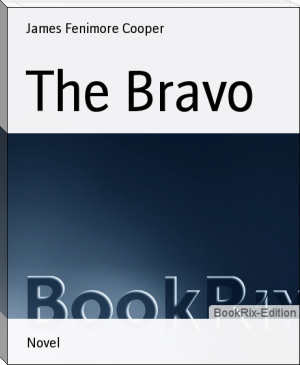Catriona by Robert Louis Stevenson (best motivational books of all time TXT) 📖

- Author: Robert Louis Stevenson
Book online «Catriona by Robert Louis Stevenson (best motivational books of all time TXT) 📖». Author Robert Louis Stevenson
“Enough plows I think,” says he. “I will be the offended shentleman, for who effer heard of such suffeeciency as tell a shentlemans that is the king’s officer he cannae speak Cot’s English? We have swords at our hurdles, and here is the King’s Park at hand. Will ye walk first, or let me show ye the way?”
I returned his bow, told him to go first, and followed him. As he went I heard him grumble to himself about Cot’s English and the King’s coat, so that I might have supposed him to be seriously offended. But his manner at the beginning of our interview was there to belie him. It was manifest he had come prepared to fasten a quarrel on me, right or wrong; manifest that I was taken in a fresh contrivance of my enemies; and to me (conscious as I was of my deficiencies) manifest enough that I should be the one to fall in our encounter.
As we came into that rough rocky desert of the King’s Park I was tempted half-a-dozen times to take to my heels and run for it, so loath was I to show my ignorance in fencing, and so much averse to die or even to be wounded. But I considered if their malice went as far as this, it would likely stick at nothing; and that to fall by the sword, however ungracefully, was still an improvement on the gallows. I considered besides that by the unguarded pertness of my words and the quickness of my blow I had put myself quite out of court; and that even if I ran, my adversary would probably pursue and catch me, which would add disgrace to my misfortune. So that, taking all in all, I continued marching behind him, much as a man follows the hangman, and certainly with no more hope.
We went about the end of the long craigs, and came into the Hunter’s Bog. Here, on a piece of fair turf, my adversary drew. There was nobody there to see us but some birds; and no resource for me but to follow his example, and stand on guard with the best face I could display. It seems it was not good enough for Mr. Dancansby, who spied some flaw in my manœuvres, paused, looked upon me sharply, and came off and on, and menaced me with his blade in the air. As I had seen no such proceedings from Alan, and was besides a good deal affected with the proximity of death, I grew quite bewildered, stood helpless, and could have longed to run away.
“Fat deil ails her?” cries the lieutenant.
And suddenly engaging, he twitched the sword out of my grasp and sent it flying far among the rushes.
Twice was this manœuvre repeated; and the third time when I brought back my humiliated weapon, I found he had returned his own to the scabbard, and stood awaiting me with a face of some anger, and his hands clasped under his skirt.
“Pe tamned if I touch you!” he cried, and asked me bitterly what right I had to stand up before “shentlemans” when I did not know the back of a sword from the front of it.
I answered that was the fault of my upbringing; and would he do me the justice to say I had given him all the satisfaction it was unfortunately in my power to offer, and had stood up like a man?
“And that is the truth,” said he. “I am fery prave myself, and pold as a lions. But to stand up there—and you ken naething of fence!—the way that you did, I declare it was peyond me. And I am sorry for the plow; though I declare I pelief your own was the elder brother, and my heid still sings with it. And I declare if I had kent what way it wass, I would not put a hand to such a piece of pusiness.”
“That is handsomely said,” I replied, “and I am sure you will not stand up a second time to be the actor for my private enemies.”
“Indeed, no, Palfour,” said he; “and I think I was used extremely suffeeciently myself to be set up to fecht with an auld wife, or all the same as a bairn whateffer! And I will tell the Master so, and fecht him, by Cot, himself!”
“And if you knew the nature of Mr. Simon’s quarrel with me,” said I, “you would be yet the more affronted to be mingled up with such affairs.”
He swore he could well believe it; that all the Lovats were made of the same meal and the devil was the miller that ground that; then suddenly shaking me by the hand, he vowed I was a pretty enough fellow after all, that it was a thousand pities I had been neglected, and that if he could find the time, he would give an eye himself to have me educated.
“You can do me a better service than even what you propose,” said I; and when he had asked its nature—“Come with me to the house of one of my enemies, and testify how I have carried myself this day,” I told him. “That will be the true service. For though he has sent me a gallant adversary for the first, the thought in Mr. Simon’s mind is merely murder. There will be a second and then a third; and by what you have seen of my cleverness with the cold steel, you can judge for yourself what is like to be the upshot.”
“And I would not like it myself, if I was no more of a man than what you wass!” he cried. “But I will do you right, Palfour. Lead on!”
If I had walked slowly on the way into that accursed park my heels were light enough on the way out. They kept time to a very good old air, that is as ancient as the Bible, and the words of it are: “Surely the bitterness of death is passed.” I mind that I was extremely thirsty, and had a drink at Saint Margaret’s well on the road down, and the sweetness of that water passed belief. We went through the sanctuary, up the Canongate, in by the Netherbow, and straight to Prestongrange’s door, talking as we came and arranging the details of our affair. The footman owned his master was at home, but declared him engaged with other gentlemen on very private business, and his door forbidden.
“My business is but for three minutes, and it cannot wait,” said I. “You may say it is by no means private, and I shall be even glad to have some witnesses.”
As the man departed unwillingly enough upon this errand, we made so bold as to follow him to the ante-chamber, whence I could hear for a while the murmuring of several voices in the room within. The truth is, they were three at the one table—Prestongrange, Simon Fraser, and Mr. Erskine, Sheriff of Perth; and as they were met in consultation on the very business of the Appin murder, they were a little disturbed at my appearance, but decided to receive me.
“Well, well, Mr. Balfour, and what brings you here again? and who is this you bring with you?” says Prestongrange.
As for Fraser, he looked before him on the table.
“He is here to bear a little testimony in my favour, my lord, which I think it very needful you should hear,” said I, and turned to Duncansby.
“I have only to say this,” said the lieutenant, “that I stood up this day with Palfour in the Hunter’s Pog, which I am now fery sorry for, and he behaved himself as pretty as a shentlemans could ask it. And I have creat respects for Palfour,” he added.
“I thank you for your honest expressions,” said I.
Whereupon Duncansby made his bow to the company, and left the chamber, as we had agreed upon before.
“What have I to do with this?” says Prestongrange.
“I will tell your lordship in two words,” said I. “I have brought this gentleman, a King’s officer, to do me so much justice. Now I think my character is covered, and until a certain date, which your lordship can very well supply, it will be quite in vain to despatch against me any more officers. I will not consent to fight my way through the garrison of the castle.”
The veins swelled on Prestongrange’s brow, and he regarded me with fury.
“I think the devil uncoupled this dog of a lad between my legs!” he cried; and then, turning fiercely on his neighbour, “This is some of your work, Simon,” he said. “I spy your hand in the business, and, let me tell you, I resent it. It is disloyal, when we are agreed upon one expedient, to follow another in the dark. You are disloyal to me. What! you let me send this lad to the place with my very daughters! And because I let drop a word to you..... Fy, sir, keep your dishonours to yourself!”
Simon was deadly pale. “I will be a kick-ball between you and the Duke no longer,” he exclaimed. “Either come to an agreement, or come to a differ, and have it out among yourselves. But I will no longer fetch and carry, and get your contrary instructions, and be blamed by both. For if I were to tell you what I think of all your Hanover business it would make your head sing.”
But Sheriff Erskine had preserved his temper, and now intervened smoothly. “And in the meantime,” says he, “I think we should tell Mr. Balfour that his character for valour is quite established. He may sleep in peace. Until the date he was so good as to refer to it shall be put to the proof no more.”
His coolness brought the others to their prudence; and they made haste, with a somewhat distracted civility, to pack me from the house.
THE HEATHER ON FIRE
When I left Prestongrange that afternoon I was for the first time angry. The Advocate had made a mock of me. He had pretended my testimony was to be received and myself respected; and in that very hour, not only was Simon practising against my life by the hands of the Highland soldier, but (as appeared from his own language) Prestongrange himself had some design in operation. I counted my enemies; Prestongrange with all the King’s authority behind him; and the Duke with the power of the West Highlands; and the Lovat interest by their side to help them with so great a force in the north, and the whole clan of old Jacobite spies and traffickers. And when I remembered James More, and the red head of Neil the son of Duncan, I thought there was perhaps a fourth in the confederacy, and what remained of Rob Roy’s old desperate sept of caterans would be banded against me with the others. One thing was requisite—some strong friend or wise adviser. The country must be full of such, both able and eager to support me, or Lovat and the Duke and Prestongrange had not been nosing for expedients; and it made me rage to think that I might brush against my champions in the street and be no wiser.
And just then (like an answer) a gentleman brushed against me going by, gave me a meaning look, and turned into a close. I knew him with the tail of my eye—it was Stewart the Writer; and, blessing my good fortune, turned in to follow him. As soon as I had entered the close I saw him standing in the mouth of a stair, where he made me a signal and immediately vanished. Seven storeys up, there he was again in a house door, the which he looked behind us after we had entered. The house was quite dismantled, with not a stick of furniture; indeed, it was one of which Stewart had the letting in his hands.
“We’ll have to sit upon the floor,” said he; “but we’re safe here for the time being, and I’ve been wearying to see ye, Mr. Balfour.”
“How’s it with Alan?” I asked.
“Brawly,” said he. “Andie picks him up at Gillane sands to-morrow, Wednesday. He was keen to say good-bye to ye, but the way that things were going, I was feared the pair of ye was maybe best apart. And that brings me to the essential: how does your business speed?”
“Why,” said I, “I was told only this morning that my testimony was accepted, and I was to travel to Inverary with the Advocate, no less.”
“Hout awa!” cried Stewart. “I’ll never believe that.”
“I have maybe a suspicion of my own,” says I,
 Have you ever thought about what fiction is? Probably, such a question may seem surprising: and so everything is clear. Every person throughout his life has to repeatedly create the works he needs for specific purposes - statements, autobiographies, dictations - using not gypsum or clay, not musical notes, not paints, but just a word. At the same time, almost every person will be very surprised if he is told that he thereby created a work of fiction, which is very different from visual art, music and sculpture making. However, everyone understands that a student's essay or dictation is fundamentally different from novels, short stories, news that are created by professional writers. In the works of professionals there is the most important difference - excogitation. But, oddly enough, in a school literature course, you don’t realize the full power of fiction. So using our website in your free time discover fiction for yourself.
Have you ever thought about what fiction is? Probably, such a question may seem surprising: and so everything is clear. Every person throughout his life has to repeatedly create the works he needs for specific purposes - statements, autobiographies, dictations - using not gypsum or clay, not musical notes, not paints, but just a word. At the same time, almost every person will be very surprised if he is told that he thereby created a work of fiction, which is very different from visual art, music and sculpture making. However, everyone understands that a student's essay or dictation is fundamentally different from novels, short stories, news that are created by professional writers. In the works of professionals there is the most important difference - excogitation. But, oddly enough, in a school literature course, you don’t realize the full power of fiction. So using our website in your free time discover fiction for yourself. 




Comments (0)